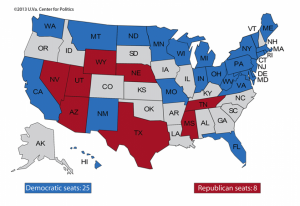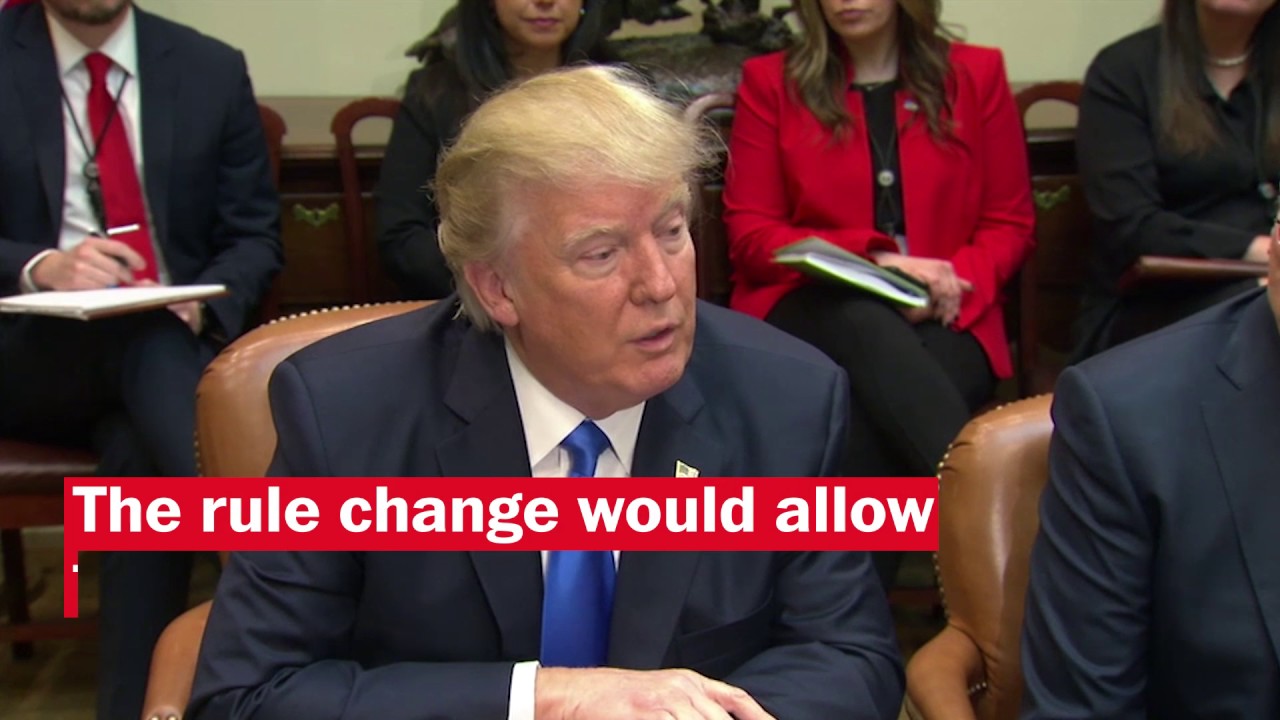 By Aaron Blake
By Aaron Blake
President Trump’s first 12 days in office have been marked by controversy, division (even among Republicans) and uncertainty.
His nomination of Neil Gorsuch to the Supreme Court on Tuesday night was the antithesis of all that. In the 49-year-old Gorsuch, Trump picked a man who by all previous standards checks the boxes of a Supreme Court nominee and would be tough for Democrats to block. (I emphasize by all previous standards, for reasons we’ll get to.)
And yet, Democrats are girding for perhaps their biggest fight yet — one that has no guarantee of measurable success and plenty of downside. Put plainly: Democrats don’t have much of a hand in Washington right now, and going hard at Gorsuch risks overplaying it.
The problem Democrats have is twofold: 1) They are incensed that Republicans managed to avoid even holding hearings for President Obama’s nominee for the same seat, Merrick Garland, last year, and 2) They have a base just itching for a fight with Trump.
Gorsuch presents a fight on perhaps the grandest stage possible — over the future of the Supreme Court for decades to come. Given Democrats’ righteous indignation and their base’s virulent anti-Trumpism, the emotional and immediate temptation has to be to dig in and not give an inch.
Outside groups are already applying such pressure. Moments before Trump made Gorsuch’s pick official, the liberal group CREDO Action sent an email assuring that “Democrats who don’t fight will face the wrath of their constituents” — a veiled threat of primary challenges, perhaps.
“Democrats cannot allow the confirmation of a Supreme Court justice picked by a racist, fascist, sexual predator who lost the majority vote by almost three million votes,” CREDO political director Murshed Zaheed said.
And here are Michael Moore’s thoughts:
Senate Dems, let’s be very clear: You will filibuster & block this SC nom or we will find a true progressive and primary u in next election.
These pretty well sums up how the Democratic base feels, and that base is emboldened after having its voice registered in the form of Bernie Sanders in the 2016 Democratic primaries. The base is also emboldened by Hillary Clinton’s popular-vote win. And Senate Democrats have responded by putting up roadblocks on Trump’s Cabinet nominees and signaling a possible filibuster of Gorsuch.
But the emotional and immediate temptation isn’t always the more prudent political one.
Speaking more practically, Democrats are in the Senate minority and don’t have an obvious and immediate path back. Trump is unpopular, and midterms are historically good to the opposition party, yes. But to win back the Senate in 2018, they’ll have to defend seats in 10 states that Trump won in 2016 and also will have to win three seats out of only eight pickup opportunities — with only two of them presenting obvious targets.
Look at this map:
Basically, they have to hold everything (including North Dakota, Indiana and Missouri) and also win in a state like Texas, Nebraska or Tennessee. That’s hugely difficult, no matter how unpopular Trump is 21 months from now.
Why is that important? Well, if Democrats block Gorsuch’s nomination, there is the very real possibility that Republicans will do what then-Democratic Senate Majority Leader Harry M. Reid (D-Nev.) started back in 2013 and continue to dismantle the filibuster — which for now is Democrats’ only real vestige of power in Washington. Getting rid of the filibuster is known as the “nuclear option.”
Reid invoked the nuclear option for non-Supreme Court nominations when he viewed Republicans as unduly blocking Democratic nominees, but it remains in place for other votes, including for Gorsuch. And there is a real possibility that if Democrats block a box-checker such as Gorsuch, they’ll tempt Republicans to do away with the filibuster.
Trump has already urged the GOP to do just that. He was asked last week by Sean Hannity whether he would support invoking it if Democrats block his nominee. “I would,” Trump responded twice.
A few important caveats here: First, there remains the question of whether the GOP — with just 52 senators in its majority — would actually have the votes to go nuclear; it’s not an easy decision to undo such long-standing rules. Second is that the filibuster may be doomed in the long run anyway, given the increasingly partisan, win-at-all-costs environment in Washington. And third is that Republicans going nuclear could backfire more than Reid’s did, given the stakes of a Supreme Court nomination and given that Republicans decried Reid’s resorting to the nuclear option. Some Democrats argue it’s the GOP that could overreach.
“It is both what the base demands and a real strategy,” said longtime Democratic aide Scott Mulhauser, adding: “Beyond the policy, political and rhetorical rationale, Senate Democrats force [Senate Majority Leader Mitch] McConnell and the Republicans into a box: either upend years of tradition on Court picks to ram through the Justice they want, or lose and be forced into a second or even third option.”
Former Bill Clinton counsel Ronald A. Klain also argued that invoking the nuclear option could also affect Justice Anthony M. Kennedy’s decision on whether to retire — which, unlike replacing the conservative late Justice Antonin Scalia (which is what Gorsuch would be doing), could really shift the balance of the nation’s highest court:
For Senate Republicans, keeping the prospect of a Kennedy resignation in mind would counsel resisting the temptation to end the right to filibuster Supreme Court nominations. Eliminating any power of the minority to stop the most extreme possible nominee would probably be a red flag to Kennedy — an indication that the way was clear for a balance-shifting nominee who rejected Kennedy’s views and moved the court in a radical new direction.
Beyond that, Democrats may simply feel that there is a new paradigm in Washington, with Trump having thrown many or most of the political norms out the window and that his presidency is such a unique threat that everything must be attempted to stop him.
“There’s also the that-was-then-and-this-is-now argument,” former top Reid aide Jim Manley said. “Given the threat I think Trump poses to the core values that this country holds dearly, I think many of those Democrats are going to have to think pretty hard about that.”
But others think the threat of a filibuster has been too easily telegraphed and mishandled. One Democratic operative who spoke on the condition of anonymity to comment candidly said it made “zero sense” for Democrats to have telegraphed a filibuster of Gorsuch before he was even named.
“Even if you think you’re going to do it, it is disappointing that they were so eager to play to the base and be the first name in the national fundraising email, because it played right into Trump’s hands of casting Democrats as the obstructionists,” the operative said. “It was a selfish move — about promoting themselves with the base at the expense of our positioning in the fight.”
That same temptation will loom large as we now move into Gorsuch’s confirmation process. The question is whether they can resist the pressure to do what their anti-Trump base demands and play this one right, in the name of fighting for another day — or another four years.
President Trump announced his Supreme Court nominee








